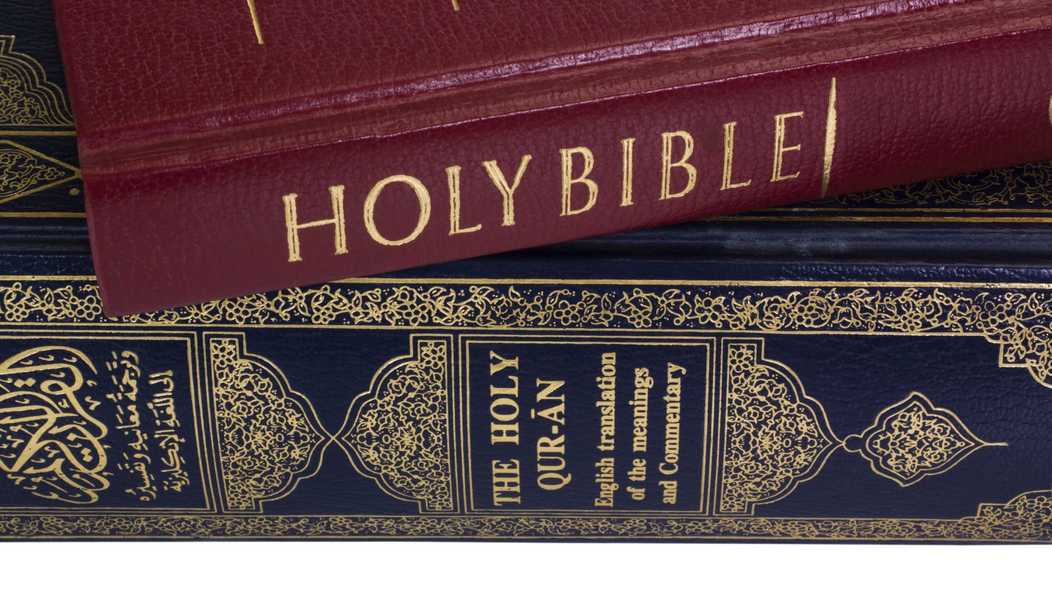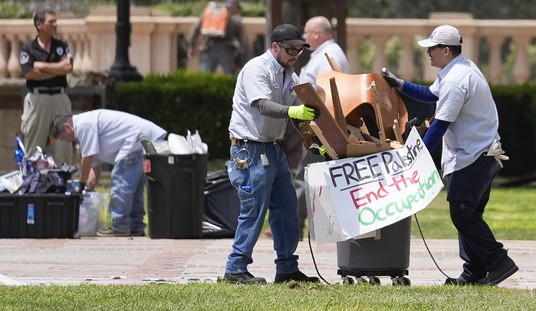I have been a pastor for the past 28 years. I am a conservative evangelical who believes all the basic tenets of Christianity: the Trinity, virgin birth and sinless humanity of Jesus Christ, the vicarious death and physical resurrection of Christ, the future judgments of the saved and the lost, salvation by grace, and so forth. I have personally talked to and shared my faith with hundreds of Muslims, both here in America and overseas. In almost all my conversations with my Muslim friends, the conversations and debates have been polite and respectful. I have also read the entire Quran all the way through twice, in two different English translations (I cannot read Arabic, unfortunately).
One translation I used is the Yusuf Ali translation that I bought at the Islamic Center in Washington, D.C. many years ago. The other is by N.J. Dawood and is published by Penguin Classics. I realize that reading the Quran twice does not make me an expert, nor do I pretend to be an expert. And I fully intend to read the Quran many more times to get a better understanding of the faith embraced by over one billion people. However, here are some of my observations about the striking similarities and contrasts between the Bible and the Quran:
Obviously both books claim divine origin, speaking of the one true God who exhibits similar qualities. The Bible was composed by at least 40 authors over a period of about 1400 years, being completed at the end of the first century. The Quran has one human author (Muhammed), and is actually a Medieval book. It was recorded almost 600 years after the New Testament was completed. Both books teach that this one true God is eternal, holy, just, merciful, and forgiving.
These books also share similar stories of creation, the fall of man, a universal flood, and the triumphs of great people of faith: the prophets, Noah, Abraham, Joseph, Moses, Mary, and Jesus are all revered in both texts.
But, the contrasts are stark and numerous. For example, the Bible tells us clearly that God is love (1 John 4:8-10) and that He loves sinners—so much so that He actually went on a rescue mission to redeem fallen humanity (Romans 5:6-8). The Quran says that God loves the righteous, but it never says that He loves sinners (Surah 3:148, 160; 5:64, 87). In fact, the Quran specifically states that God “does not love the prodigal” (6:141). Compare that with the story Jesus gives us about the Prodigal Son in Luke 15:11-32. Surah 4:106 says that God “does not love the treacherous or the sinful.” John 3:16,17 says something different: “For God so loved the world, that he gave his only Son, that whoever believes in him should not perish but have eternal life.”
As far as literature is concerned, the Quran is almost entirely poetry with only brief episodes of something like prose (as in its retelling of the story of Joseph in Surah 12) and a few parables (Surah 18:34). However, the Bible contains drama (Job), history (the books of Samuel, Kings, Chronicles, Acts of the Apostles), wisdom literature (Proverbs, Ecclesiastes, James), epistles, parables (as in the Gospels), and apocalyptic literature (Daniel, Zechariah, Revelation).
It is interesting that the Quran never gives us stories that are located or “bordered” with specific, confirmable historical contexts. For example, in the Bible we have Luke 3:1,2 in which real, historical people are named (Tiberius Caesar, Pontius Pilate, Herod the Tetrarch, Philip the Tetrarch, Lysanias, Annas and Caiaphas). All these people have been verified by sources outside the Bible. So, we know exactly the historical context when the events of Luke 3 take place. There is nothing like this in all of the Quran. The Bible mentions kings, nations, rivers, mountains, cities, and events all in their historical contexts. And these have been confirmed by other historical sources and archeology. The Quran never does this. In giving such confirmed, “investigatable” landmarks, the Bible invites the skeptic to. . . investigate! The Quran does not. It simply demands the reader believe it.
The Bible is also filled with music. Just look at the joyful, uplifting songs of most of the Psalms. Look at the commands in Ephesians 5:19 and Colossians 3:16 to sing joyfully the psalms, hymns and spiritual songs, making melody in the heart about the Lord’s redemption. But there is nothing like this in the Quran. There is praise to Allah for being great, but no commands from Allah to the believers here on earth to sing joyfully about their salvation.
Some people accuse Christians like me of preaching “hellfire and damnation.” While I do believe the Bible teaches the eternal, conscious torment of the lost in a real, literal hell, there are only a smattering of biblical texts to support this: a few examples are Matthew 25:46; John 3:16, 17; 2 Thessalonians 1:6-9; and Revelation 20:13-15. But assurance is given to all that hell is cancelled for them forever if their faith is in Jesus (John 5:24). In contrast to this, the Quran describes over and over again, on page after page, warnings in lurid detail about the pains of the damned. For example, Surah 6:14, 70; 7:40; 20:113; and 34:51 are just a start. I grew weary of endlessly reading about the torments of the lost. No assurance is ever given to anyone that they have, without a doubt, escaped hell and that heaven is their future home.
One other difference between the books is that in the Bible, God sacrifices. Because of His great love, He gives up something. He actually surrenders something. The Son temporarily gives up the glories of heaven, condescends to us, and becomes a sinless man in order to redeem sinful humanity (John 1:1-14). The Quran categorically denies the Trinity (5:119; 17:111; 18:4) and the necessity for God to become a man and die on a cross as a substitutionary sacrifice. In the Quran, God never condescends; He never gives up anything or sacrifices anything. He never assures anyone that they have actually been rescued and forgiven. The lost are left in darkness and doubt throughout the book.
Finally, there is nothing at all in the Quran that compares to the completeness and sweetness of Psalm 23. Allah is never called “our Father” and believers are never called His children. The Sermon on the Mount, the “love” chapter of 1 Corinthians 13, Paul’s great testimony of faith and confidence in Romans 8, and the many commands to love our enemies and to do good to those who spitefully use us are just not there in the Quran. The Quran does say quite a bit about how to treat unbelievers, and I will deal with that in a future article.
The holy book of Islam exalts a God who is the master of the universe, but sadly, it says nothing at all about this master becoming a servant and lovingly redeeming His lost creation.









Join the conversation as a VIP Member